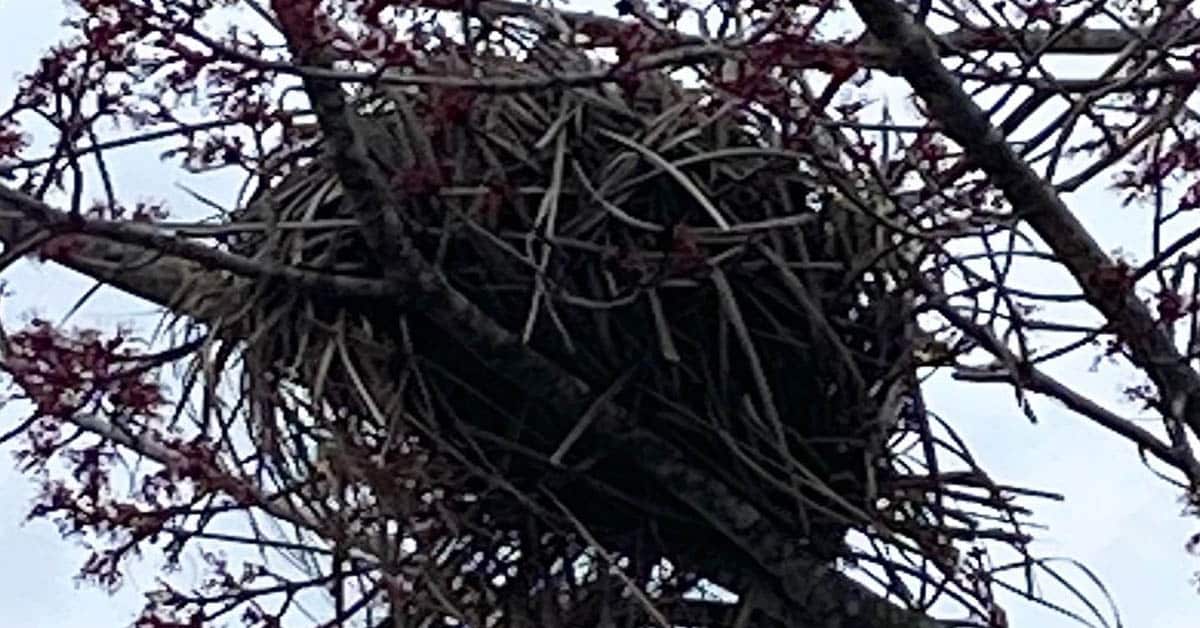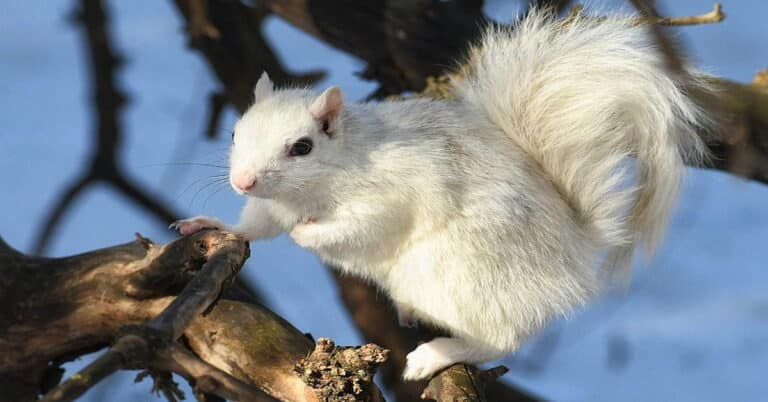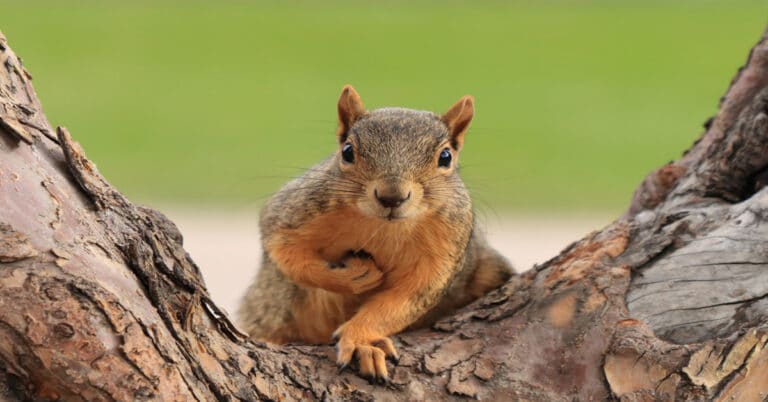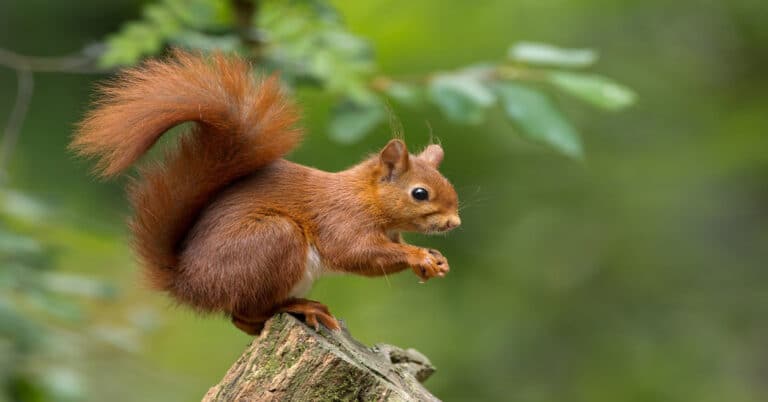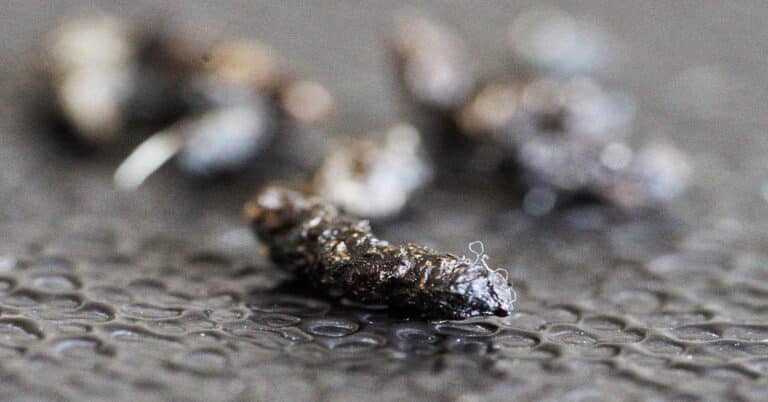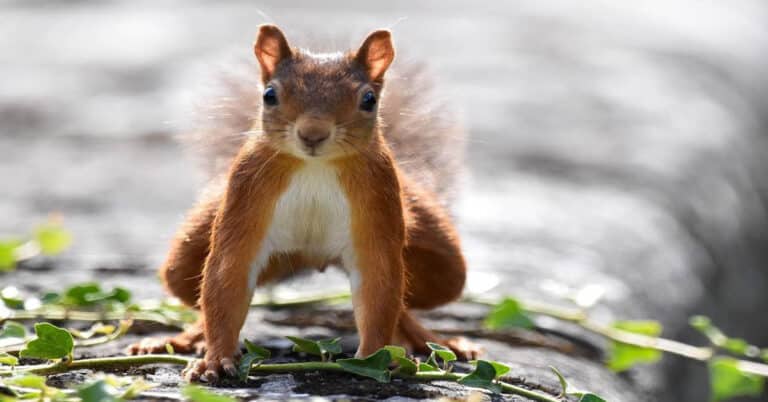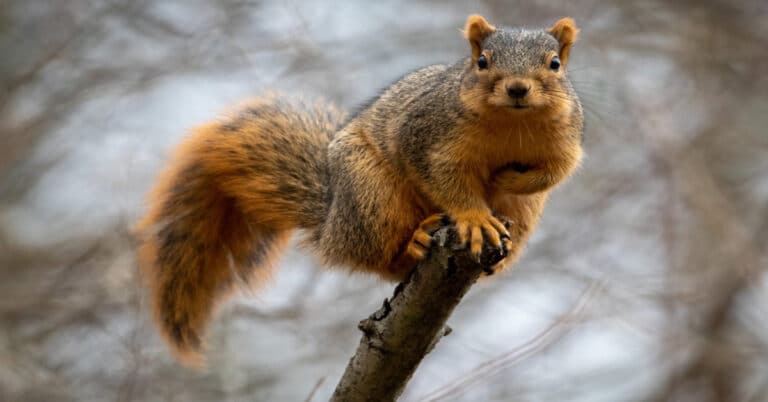What is a Squirrel Nest? – Types & Characteristics
Squirrels are adorable creatures and come from various species, it is believed that the number of species all over the world is greater than 200. Generally, squirrels fall into three categories: flying squirrels, ground squirrels, and tree squirrels.
Scientifically known as the Sciuridae family, squirrels are primarily active during warm summers and hibernate in the winter. Squirrel nests, also known as dreys, are used to stay safe, dry, and warm through cold periods. So, let’s explore the squirrel nest and its characteristics below.
Types Of Squirrel Nests
Different squirrel species can have specific types of squirrel nests. This can be influenced by the environment, area, weather, and many more things. Let’s discuss two types of natural squirrel nests: tree cavity dens and dries.
Tree Cavity Den
A woodpecker will frequently build a tree cavity den, abandon it, and then a squirrel will occupy it. Natural processes can create some cavity dens. However, some are specifically created by other creatures, such as woodpeckers. These residences are preferred by squirrels as they offer the finest defense from rain, wind, and snow.
Drey
The majority of squirrel nests, known as dreys, are made of compressed materials including twigs, bark, leaves, moss, and other materials that are clumped together. They have the appearance of a collection of tiny, rounded leaf bulbs. Squirrels often construct their dens in or near 20-foot-tall tree holes or branches.
Dreys can be different sizes but typically have a diameter of six to eight inches. They are often made primarily of leaves, but depending on what is available, they might also be made of wood, sticks, paper, or even trash. If you notice a dray close to your house, it generally implies that a squirrel uses your yard as part of its “home range.”
Briefly About Squirrels
Squirrels are small and cute mammals. They are characterized by large eyes, fluffy tails, and slender bodies. Fur length typically depends on the species, but generally, fur has a silky texture. Even though squirrels are typically gray or brown, they can also be white, red, yellow, and black.
Squirrels are affectionate creatures who readily trust people. They may be maintained as pets as well. They will come and eat from your hand if they have enough faith in you. Additionally, their brains are believed to be specifically wired for visual tasks and are highly clever.
Despite their apparent trustworthiness, they may use their gaze to determine whether something is safe or hazardous for them. In the event of any danger, they will hastily ascend a tree. Additionally, they have a reputation for making noise, particularly during mating season, when they chatter, bark, purr, and scream to express their emotions.
According to reports, all continents, except for Australia and Antarctica, are home to these species. However, these creatures are primarily found in old or almost mature forests, particularly in woodland settings.
There are many places to rest, and a squirrel’s nest is often found on oak, walnut, maple, pecan, mulberry, hickory, and elm. Particularly in forested environments, tree squirrels like to reside in trees, as suggested by their name.
Squirrels typically consume fruit, fungus, seeds, and nuts. In addition, they consume other plant materials as food. When food is scarce, some of them can also be omnivorous. They are not as predatory and do not eat other animals. These mammals prefer to eat eggs, insects, and certain tiny invertebrates as opposed to other foods.
Why do Squirrels Build Nest
Squirrels construct nests to stay warm throughout the winter, map their area, and care for their young. Actually, most squirrels will construct a number of distinct dreys in the vicinity of their area. Typically, dreys are near the animals’ food reserves or other abundant food sources. Even separate squirrel nests could have distinct functions and purposes.
By protecting them from chilly gusts, tree nests enable squirrels to endure the winter. The majority of squirrels spend winter hibernating in a nest that is extremely sturdy and is typically constructed within an existing cover. Likewise, squirrel nests designed to raise young will be especially well-hidden or safeguarded from potential predators.
When Are Squirrel Nests Built
Squirrel mating season is from February to April and from August to September a second time. They mate twice a year. Squirrels give birth after mating for roughly 40 days. Mother squirrels will build their nests during that period and save food for their young. Squirrels typically build their nests alone. However, on occasion, they may be seen raising the babies jointly and nesting together.
For survival in the winter, squirrels continue to construct nests until September and October. In order to shield themselves from the wind, they typically construct their winter nests in more secure, covered locations. All squirrel dens tend to absorb the preexisting structure of the trees they are built around. Dreys can be found in crevices and intersections where branches meet.
Where Are Squirrel Nests Found
Whether it’s a den or a dray, squirrels normally build their homes in trees, usually in a limb or a fork, around 30 feet or so from the ground for safety. In order to increase warmth and shelter, squirrels will also construct increasingly sophisticated tree dens in the hollows of trees, especially during the winter.
You could even come across a squirrel nest on the ground, depending on the species of squirrel. American red squirrels and flying squirrels typically make their nests on trees. However, ground squirrels are known to build their houses on the ground. Instead of trees, they dig tunnels on the ground. In the end, squirrels are opportunistic animals and will take any chance to build a nest that would give them sufficient protection, whether in a tree or a ground burrow.
The food is the main factor in choosing the location of a squirrel’s nest. The rodents start to go into overdrive, gorging themselves for winter, in the late summer. Since squirrels almost never stop munching, they must stay as close to dependable food sources as possible. They’ll create a “home range” close to food supplies and construct nests in favorable locations.
Squirrels are constantly moving while they’re not eating or sleeping. Most squirrels choose to construct their homes in forested locations where they can maintain their great mobility. They can cover more land and defend themselves from threats and predators more successfully if they can easily move from tree to tree. Squirrels are more likely to live in a region if it is accessible and convenient for them to move around.
A squirrel must be obtaining its necessities close to you if you observe a squirrel nest nearby. Squirrels prefer to construct homes near places where they may feel secure, acquire food and supplies for their homes, and move around with ease. Seeds, nuts, grass, weeds, bushes, flowers, roots, fungus, and fruits are just a few things squirrels eat. They’ll also break into your garden or trash at their first chance.
Although they are seldom actually a threat, squirrels may be a major annoyance. Squirrels can cause disruption or even damage to your property while searching for food or establishing nests.
Materials Used To Build Squirrel Nests
As opportunistic nest builders, squirrels use anything they can get their hands on to construct their nests. However, a drey’s real construction is more complicated than it would first appear. To build the squirrel nest’s foundation, squirrels first use twigs. They weave those twigs and make structures like a basket.
Then they gather soft and compressible items, such as moist leaves, insulation, moss, and paper. Then, to keep this material compacted, they will start to add the outer layer for extra protection. Another round of twigs is woven into the existing basket. They will then fill in any holes that are left with soft materials. Typically those materials are the leaves.
Squirrels need a mix of materials that are stiff, soft, robust, and malleable in order to finish this extremely complex structure. Just like they never stop seeking food, squirrels are continually looking for materials for their nests. They’ll continuously gather twigs, branches, vines, moss, leaves, paper, debris, and whatever else they can use. ‘
To put it clearly, generally speaking, squirrel nests are made out of:
- Twigs
- Branches
- Vines
- Moss
- Leaves
- Paper
- Debris
- Any soft material’
The interior of the drey is lined with extra material, typically shredded bark, grass, and leaves. The inside part of those nests is around 6 to 8 inches in diameter. However, certain species of squirrel, like gray squirrels, may have considerably bigger nests. Some nest chambers measure up to two feet across.
Bottom Line
All in all, depending on the environment, habitat, and species, squirrels’ nests can be different. Squirrels either live in dreys or cavity dens. Dreys are typically used to raise babies. Apart from this, ground squirrels sometimes also live underground in the burrows.

Nato is a content writer and researcher with a background in psychology who’s eager to explore the wonders of nature. As a travel enthusiast and animal lover, she hopes to inspire others to discover and cherish the beauty and importance of the natural world.

